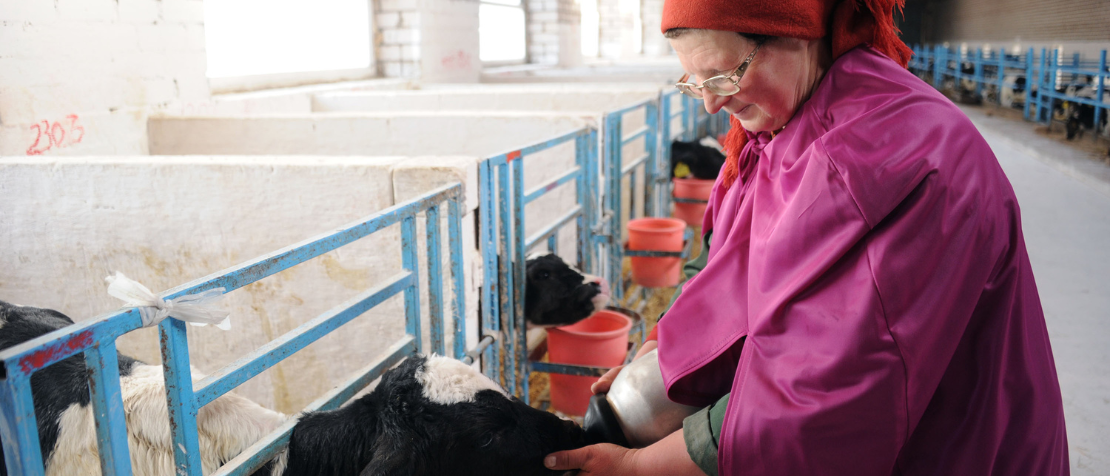FAO surveys characterize antimicrobial use practices in the livestock sector

©FAO/Sergei Gapon
Antimicrobial resistance (AMR) has emerged as a significant global health threat affecting humans, animals, plants, and the environment, and as such is a perfect example of a One Health issue. Microorganisms, which cause infectious diseases such as bacteria, fungi, viruses and protozoan parasites, that are not killed or inhibited by antimicrobial drugs are called antimicrobial resistant. A major contributor to this phenomenon is the inappropriate use of antimicrobials, thus the understanding and improvement of antimicrobial use practices is crucial across all sectors.
In an effort to combat AMR, the Food and Agriculture Organization of the United Nations (FAO) has implemented Knowledge, Attitude, and Practices (KAP) surveys aligned with the objectives in its Action Plan on AMR and the Global Action Plan on AMR. Conducted from 2020 to 2023, these surveys revealed antimicrobial use practices and awareness of AMR in the livestock sector of Albania, Armenia, Azerbaijan, Bosnia and Herzegovina, Georgia, Kosovo1, Kyrgyzstan, Montenegro, North Macedonia, Serbia, Tajikistan, and Ukraine.
To gain a comprehensive overview of antimicrobial use in livestock, 500 to 700 face-to-face interviews were conducted for each survey with farmers of priority livestock production systems, field veterinarians, veterinary pharmacists, and feed mill operators. Twelve detailed survey reports are in preparation and will be published, upon approval at the national level, under the newly established FAO series Understanding Antimicrobial Use in Food and Agriculture. These reports are the first of their kind to provide a comprehensive overview of antimicrobial use in the livestock sector in eastern Europe, the Caucasus, and Central Asia. They describe the sources of antibiotics, the main use patterns (such as common routes of administration; aim of use; and use in different age groups), the main indications of antibiotic treatment, drugs used in different animal species, the handling of antibiotics, and awareness of AMR.
Some key issues identified include the purchase of antibiotics without prescriptions, the use of antibiotics without the oversight of a veterinarian, the use of antibiotics for growth promotion, and misunderstandings regarding the concept of AMR, and the principles of prudent antimicrobial use. In addition, the surveys revealed some gaps in the hygiene and biosecurity practices of farmers that can increase the risk of disease introduction and spread on their farms, thus leading to an increased need for antimicrobial treatments. Upon analyzing the survey findings, FAO has been organizing regional and national multistakeholder consultations to discuss the results with the main national actors, and to jointly explore potential actions for improvement.
The insights provided by the surveys are crucial for shaping future awareness raising campaigns, developing targeted training programmes, and informing policy revisions aimed at promoting responsible antimicrobial use and reducing the spread of AMR within the food and agriculture sectors.
FAO Knowledge Dissemination Dialogue on AMR
Interested to hear more about the surveys and the key findings? Don’t miss the online FAO Knowledge Dissemination Dialogue on AMR on 11 July 2024, at 15:00 CEST! Just click the link here to register for the webinar, and to learn more about antimicrobial use practices in the livestock sector!
1References to Kosovo shall be understood to be in the context of Security Council resolution 1244 (1999).
FAO series - Understanding Antimicrobial Use in Food and Agriculture
Registration link - FAO Knowledge Dissemination Dialogue on AMR, 11 July 2024
The FAO Action Plan on Antimicrobial Resistance 2021–2025
Global action plan on antimicrobial resistance
Antimicrobial resistance
